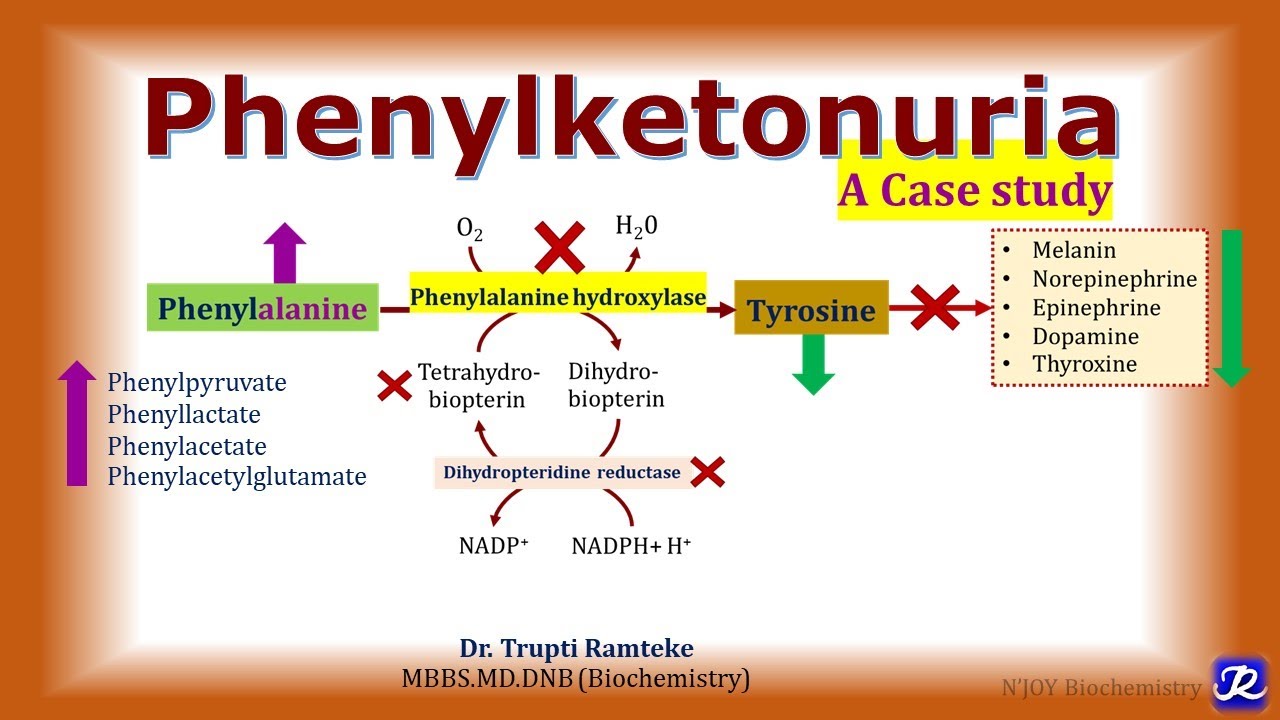In this YouTube video, Dr. Trupti delves into the intricate world of phenylketonuria (PKU), a genetic disorder disrupting amino acid metabolism. PKU arises from phenylalanine hydroxylase enzyme deficiency, hindering phenylalanine conversion into tyrosine. This imbalance manifests in distinct symptoms, including urine discoloration and a peculiar odor. Through genetic mutations, PKU affects one in ten thousand births, detectable through various diagnostic tests like Guthrie’s test. Treatment revolves around dietary adjustments, supplementation, and careful monitoring, especially for expectant mothers, to avert potential developmental setbacks in their offspring.
Key Concepts:
- Phenylketonuria (PKU) as an inborn error of amino acid metabolism
- Deficiency or absence of phenylalanine hydroxylase enzyme leading to impaired phenylalanine conversion
- Characteristics including urine discoloration and distinct odor
- Autosomal recessive inheritance with mutations in the phenylalanine hydroxylase gene (PAH gene)
- Diagnostic tests: Guthrie’s test, blood phenylalanine level estimation, prenatal diagnosis
- Treatment options: low phenylalanine diet, tyrosine supplementation, enzyme therapy with Palynziq
- Importance of monitoring phenylalanine levels during pregnancy to prevent developmental issues
- Emphasis on early diagnosis and treatment to avoid mental retardation
How might advancements in genetic therapy impact the treatment and management of phenylketonuria in the future, potentially altering the landscape of care for affected individuals and their families?
